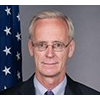Bahrain
According to Human Rights Watch, human rights conditions in Bahrain worsened in 2007. Despite changes initiated since 2001 by a reformist ruler, the government has done little to institutionalize human rights in law, and continues to practice restrictive policies towards freedoms of expression, assembly and association. (HRW World Report 2008).
- Table of Contents
- News
- Overview
- Basic Information
- History
- Newspapers
- History of U.S. Relations with Bahrain
- Current U.S. Relations with Bahrain
- Where Does the Money Flow
- Controversies
- Human Rights
- Debate
- Past Ambassadors
- Ambassador to the U.S.
- Embassy Web Site in the U.S.
- Comments
- Leave a comment
U.S. Ambassador to Bahrain

On September 18, 2014, the Senate Foreign Relations Committee approved the nomination of William V. Roebuck as the next U.S. ambassador to Bahrain. If approved by the full Senate, it will be the first ambassadorial posting for Roebuck, a career Foreign Service officer.
Roebuck is from Rocky Mount, North Carolina, and graduated from Rocky Mount High School in 1974. He attended Wake Forest University, earning a B.A. in English literature in 1978 and an M.A. in the same subject in 1981. He worked on the college newspaper while an undergrad, and in 1982 he published Songs of Experience: Three African Novelists on Modern Africa about Chinua Achebe of Nigeria, Peter Abrahams of South Africa and Ngũgĩ wa Thiong'o of Kenya.
Roebuck got an early start on diplomacy, joining the Peace Corps in 1978 and serving as a volunteer in Sassandra, Côte D’Ivoire. In 1982, he began teaching English in Ta’if, Saudi Arabia, staying there for five years. Roebuck then went to law school at the University of Georgia, earning his J.D. in 1992. He joined the Foreign Service the same year.
His first assignment was as a consular officer in Kingston, Jamaica, until 1994. In 1995, Roebuck had his first posting to the Middle East, as a political officer in the consulate in Jerusalem. He returned to Washington in 1997 to become a staff assistant to the assistant secretary of state for Near Eastern affairs. The following year, he began to study Arabic at the Foreign Service institutes in Washington and Tunis, Tunisia.
Roebuck began an eventful tour as political officer at the U.S. Embassy in Tel Aviv in 2000. He worked on political issues in the Gaza Strip. On October 15, 2003, a convoy in which he was riding in Gaza City drove over a buried improvised explosive device (IED). Three American private security officers were killed in the explosion. Roebuck had been on his way to interview potential Fulbright scholars.
Roebuck was named political section chief at the U.S. Embassy in Damascus, Syria, in 2004 and for the last year of his tour was acting deputy chief of mission. He was brought home in 2007 as deputy office director in the Office of Arabian Peninsula Affairs. He served a tour in Baghdad from July 2009 until August 2010 as deputy political counselor at the embassy there. His main emphasis was providing support for national elections in March 2010 He returned to Washington in September 2010 as director of the Office of Maghreb Affairs, a post he held until December 2012.
Roebuck was sent to Libya in January 2013 in the wake of the attacks on the U.S. Consulate in Benghazi to serve as chargé d’affaires at the embassy in Tripoli, staying there for six months.
After that, he came home to be deputy assistant secretary of state for Egypt and Maghreb Affairs. In February 2014, he and other Americans walked out of a Tunisian celebration of the country’s new constitution after Iranian parliamentary speaker Ali Larijani criticized the United States for “supporting dictatorships” during the Arab Spring uprisings.
During his confirmation hearing for the Bahrain job, Roebuck told committee members that he wouldn’t abide by Bahrain’s law that a government representative be present for meetings between embassy personnel and members of that country’s opposition party. Much of his work there figures to be focused on human rights concerns in the country on which the United States is dependent for basing ships.
Roebuck occasionally writes poetry for publication in the Foreign Service Journal. In the September 2011 issue of the journal he published an article titled “Bloomsday in Baghdad: Reading Joyce in Iraq.” He and his wife, Ann, have one son. Roebuck speaks Arabic and French.
-Steve Straehley
To Learn More:
U.S. Embassy Libya: New Chargé d’Affaires William Roebuck Assumes Office
Official Biography (pdf)
Testimony Before Senate Foreign Relations Committee (pdf)
State Department Cables 2006-2010 (WikiLeaks)
morePrevious U.S. Ambassador to Bahrain

In June 2011, President Barack Obama nominated diplomat Thomas C. Krajeski to be the U.S. ambassador to Bahrain. Krajeski has spent much of his career serving in the Middle East and Persian Gulf regions, including two stints in Iraq. He received his confirmation hearing before the Senate Foreign Relations Committee on September 21.
According to Human Rights Watch, human rights conditions in Bahrain worsened in 2007. Despite changes initiated since 2001 by a reformist ruler, the government has done little to institutionalize human rights in law, and continues to practice restrictive policies towards freedoms of expression, assembly and association. (HRW World Report 2008).
Comments
U.S. Ambassador to Bahrain

On September 18, 2014, the Senate Foreign Relations Committee approved the nomination of William V. Roebuck as the next U.S. ambassador to Bahrain. If approved by the full Senate, it will be the first ambassadorial posting for Roebuck, a career Foreign Service officer.
Roebuck is from Rocky Mount, North Carolina, and graduated from Rocky Mount High School in 1974. He attended Wake Forest University, earning a B.A. in English literature in 1978 and an M.A. in the same subject in 1981. He worked on the college newspaper while an undergrad, and in 1982 he published Songs of Experience: Three African Novelists on Modern Africa about Chinua Achebe of Nigeria, Peter Abrahams of South Africa and Ngũgĩ wa Thiong'o of Kenya.
Roebuck got an early start on diplomacy, joining the Peace Corps in 1978 and serving as a volunteer in Sassandra, Côte D’Ivoire. In 1982, he began teaching English in Ta’if, Saudi Arabia, staying there for five years. Roebuck then went to law school at the University of Georgia, earning his J.D. in 1992. He joined the Foreign Service the same year.
His first assignment was as a consular officer in Kingston, Jamaica, until 1994. In 1995, Roebuck had his first posting to the Middle East, as a political officer in the consulate in Jerusalem. He returned to Washington in 1997 to become a staff assistant to the assistant secretary of state for Near Eastern affairs. The following year, he began to study Arabic at the Foreign Service institutes in Washington and Tunis, Tunisia.
Roebuck began an eventful tour as political officer at the U.S. Embassy in Tel Aviv in 2000. He worked on political issues in the Gaza Strip. On October 15, 2003, a convoy in which he was riding in Gaza City drove over a buried improvised explosive device (IED). Three American private security officers were killed in the explosion. Roebuck had been on his way to interview potential Fulbright scholars.
Roebuck was named political section chief at the U.S. Embassy in Damascus, Syria, in 2004 and for the last year of his tour was acting deputy chief of mission. He was brought home in 2007 as deputy office director in the Office of Arabian Peninsula Affairs. He served a tour in Baghdad from July 2009 until August 2010 as deputy political counselor at the embassy there. His main emphasis was providing support for national elections in March 2010 He returned to Washington in September 2010 as director of the Office of Maghreb Affairs, a post he held until December 2012.
Roebuck was sent to Libya in January 2013 in the wake of the attacks on the U.S. Consulate in Benghazi to serve as chargé d’affaires at the embassy in Tripoli, staying there for six months.
After that, he came home to be deputy assistant secretary of state for Egypt and Maghreb Affairs. In February 2014, he and other Americans walked out of a Tunisian celebration of the country’s new constitution after Iranian parliamentary speaker Ali Larijani criticized the United States for “supporting dictatorships” during the Arab Spring uprisings.
During his confirmation hearing for the Bahrain job, Roebuck told committee members that he wouldn’t abide by Bahrain’s law that a government representative be present for meetings between embassy personnel and members of that country’s opposition party. Much of his work there figures to be focused on human rights concerns in the country on which the United States is dependent for basing ships.
Roebuck occasionally writes poetry for publication in the Foreign Service Journal. In the September 2011 issue of the journal he published an article titled “Bloomsday in Baghdad: Reading Joyce in Iraq.” He and his wife, Ann, have one son. Roebuck speaks Arabic and French.
-Steve Straehley
To Learn More:
U.S. Embassy Libya: New Chargé d’Affaires William Roebuck Assumes Office
Official Biography (pdf)
Testimony Before Senate Foreign Relations Committee (pdf)
State Department Cables 2006-2010 (WikiLeaks)
morePrevious U.S. Ambassador to Bahrain

In June 2011, President Barack Obama nominated diplomat Thomas C. Krajeski to be the U.S. ambassador to Bahrain. Krajeski has spent much of his career serving in the Middle East and Persian Gulf regions, including two stints in Iraq. He received his confirmation hearing before the Senate Foreign Relations Committee on September 21.







Comments